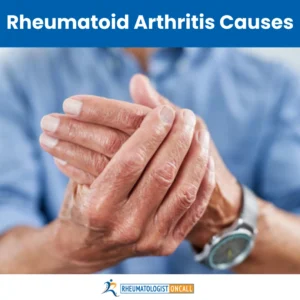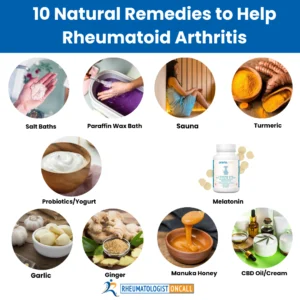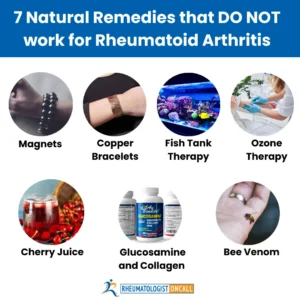SHARE
Sjogren’s Syndrome is a debilitating autoimmune disorder that affects millions of people worldwide. It causes dryness in the eyes, mouth, and other parts of the body, leading to fatigue, joint pain, and an increased risk of lymphoma. But did you know that incorporating the right vitamins into your diet can help alleviate some of the symptoms of Sjogren’s Syndrome? In this comprehensive guide, we’ll discuss the best vitamins for Sjogren’s Syndrome, including Vitamin D, Omega-3 Fatty Acids, Vitamin B Complex, and Vitamin C, Vitamin E, and how they can help improve your overall quality of life.

Vitamin D for Sjogren’s Syndrome
Vitamin D, also known as the “sunshine vitamin,” is crucial for individuals with Sjogren’s Syndrome as it regulates the immune system and reduces inflammation. Vitamin D deficiency was shown to increase the risk of autoimmune disease by 22%. But with limited exposure to sunlight, many individuals with Sjogren’s are deficient in Vitamin D, making supplementation a must.
There are studies that showed that low levels of vitamin D can be involved in increasing the risk to develop Sjogren’s Syndrome.
Other studies found that low levels of vitamin D are associated with worse symptoms of Sjogren’s like neuropathy and increased risk of lymphoma.
What is the recommended dose?
The recommended daily dose of Vitamin D for Sjogren’s is 1000-2000 IU per day but always consult with a physician before starting a supplement regimen to avoid potential toxicity. There are studies that support even higher doses, but that is not recommended to all patients as it can cause severe side effects.

Omega-3 Fatty Acids for Sjogren’s Syndrome
Omega-3 fatty acids, or fish oil, found in fatty fish like salmon, sardines, and mackerel, are essential for good health and reducing inflammation. One of the key symptoms of Sjogren’s syndrome is dry mouth and dry eyes. This can be a result of the inflammation that is associated with the disease. However, some studies have shown that fish oil can help improve these symptoms. A study published in 2013 found that patients with Sjogren’s syndrome who took fish oil supplements had improved symptoms of dry mouth and dry eyes. There are also studies that do not support the benefit of using omega- 3 supplements in stimulating saliva flow.
What is the recommended dose?
The recommended daily dose of Omega-3 fatty acids for Sjogren’s is between 1,000-2,000mg per day but always consult with your rheumatologist.

Vitamin B Complex for Sjogren’s Syndrome
Vitamin B Complex is a group of essential vitamins for maintaining healthy skin and mucous membranes, supporting a healthy nervous system, and reducing stress levels. These vitamins are also important for individuals with Sjogren’s Syndrome as they can improve energy levels and alleviate fatigue. For example, Vitamin B12 deficiency was found in some patients with Sjogren’s Syndrome and caused pernicious anemia.

Vitamin C for Sjogren’s Syndrome
Vitamin C is a powerful antioxidant that boosts the immune system and reduces inflammation. It is also important for maintaining healthy skin and mucous membranes, which are often affected in individuals with Sjogren’s Syndrome. A study found that Vitamin C supplementation improved the symptoms of Sjogren’s, including dryness in the mouth and eyes. Vitamin C can be found in a variety of fruits and vegetables, but a supplementation is also an option.
What is the recommended dose?
The recommended daily dose of Vitamin C is between 500-1,000mg per day.
Vitamin E for Sjogren’s Syndrome
Vitamin E is an antioxidant, protecting the cells from free radicals. The studies done about vitamin E in Sjogren’s are very limited. However, a study that explored the impact of vitamins A, D, and E on the immune system in Sjogren’s syndrome showed lower levels of these vitamins impact the immune system cells.
Vitamin E can be found in sunflower seeds, peanuts, almonds, pumpkin, avocado, and asparagus. A vitamin E deficiency is rare in the United States.
Vitamin E oil might be helpful for dry mouth and ulcerations or sores inside the mouth. You may try this option for 3-4 days. Don’t forget to consult with your physician.
Conclusion
In conclusion, incorporating the right vitamins into your diet can help alleviate some of the symptoms of Sjogren’s Syndrome. Vitamin D, Omega-3 Fatty Acids, Vitamin B Complex, Vitamin C, and Vitamin E are some of the vitamins with promising results for Sjogren’s Syndrome. They have the potential to improve the overall quality of life for individuals with this autoimmune disorder. It is important to always consult with a physician before starting a supplement regimen, as the recommended daily doses may vary, and to avoid potential toxicity or interactions with certain medications.
I hope that this blog has provided valuable information If you or someone you know is living with this condition, remember that you are not alone and there is always help available. Don’t hesitate to reach out and connect with us for the care and support you need.














